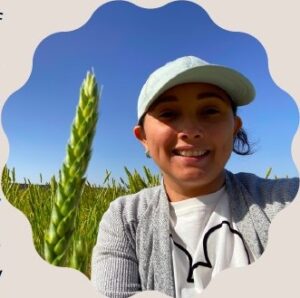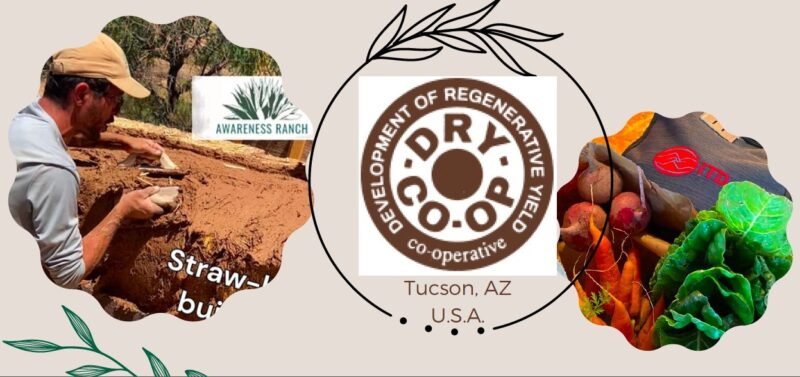By Yessenia Recarte
 From its beginning, Human Existence represents a race, a competition to arrive first and conceive life. From the beginning, our human nature develops the capacity to face and overcome challenges. Some of the problems that humanity currently suffers, such as environmental degradation, energy, and food crises or health issues, force us to rethink the current industrial and food production model.
From its beginning, Human Existence represents a race, a competition to arrive first and conceive life. From the beginning, our human nature develops the capacity to face and overcome challenges. Some of the problems that humanity currently suffers, such as environmental degradation, energy, and food crises or health issues, force us to rethink the current industrial and food production model.
Terms such as sustainable agriculture, development of regenerative yields, permaculture, experimental farms, natural building, and rainwater harvesting must become familiar to our thinking because making a way to sustainability is an incredible option to regenerate our existence and create abundance while honoring the Earth.
Sustainable agriculture revolves around the soil, minimizing the disturbance to the land caused by using harmful chemicals or even by plowing. Crop diversity and the integration and rotation of animals are farming activities that will allow the soil to rest, build, and regenerate. With these processes, we go back to the origin, looking after the soil so that the soil will protect us.
After four weeks of the Professional Fellowship Program with Dry Co-op in Tucson, Arizona, such methods came to my mind. Using the learning-doing-teaching process, I found a successful way to integrate these concepts and developed an action plan to adapt our farming setting in Honduras to sustainable regenerative practices.
We can overcome our current circumstances by implementing regenerative yields. Regenerative yields could provide healthy, gratifying, and delicious food by alternating plants, cash or cover crops, and animal interaction to reach a new symbiotic environment that can build the soil, not just fertilize or fumigate it.

The agriculture field must face an increasing food demand for a constantly growing population. To meet this food demand, regenerative yields applied to partners or fellowships can expand educational opportunities in sustainable practices, so that more people are trained to grow natural and local products. To achieve regenerative yields in water, we can observe the runoff from the landscape to identify opportunities such as water harvesting or water basins. It’s all about being more efficient and holistic with the water cycle. The goals for regenerative yields in a natural building will connect us to experimental farms that offer workshops to learn about durable construction materials such as lavacrete, adobe block, natural clay plasters, and strawbale building.
Every generation needs to be aware, to do what’s possible to support local and small-scale agriculture and to develop regenerative yields and effective connections. Let’s reduce our food miles (distance traveled by a food item between production and consumption) and use our forks and wallet for consuming products that come from farmers that adopt better practices.
In Tucson, Arizona, you can find a strong community of believers or visionaries committed to sustainability in agriculture, processed meats, natural building, and water management; a community that supports agriculture (CSA). Most importantly, there are people with their local perspectives and challenges that are willing to host fellowships and spread the seed of learning to be cultivated in different fields around the world.
The Professional Fellows Program represents a magnificent opportunity for Hondurans and citizens all over the world to partner, learn, do, replicate, and teach in several fields.
“Good nutrition comes from good taste, which comes from people who really know how to grow stuff…and you have to train these people because it doesn’t just happen.”
Leo Dunaetz
The wisdom of Big D, 88 years old farmer
Southern Arizona, Edible Communities, (Jan/Feb 2014, Issue No.4).
Please let’s continue training, and actively supporting every institute or cooperative that is involved in the long-term transmission of knowledge to make sustainability and regenerative yields happen.
All opinions expressed by the program participants are their own and do not represent nor reflect official views from the Bureau of Educational and Cultural Affairs of the U.S. Department of State, or of the Institute for Training and Development, Inc.



